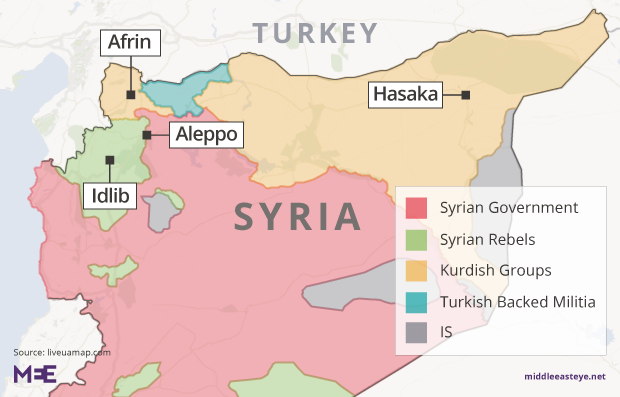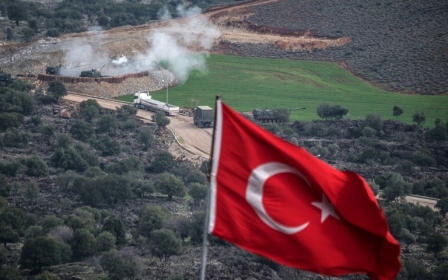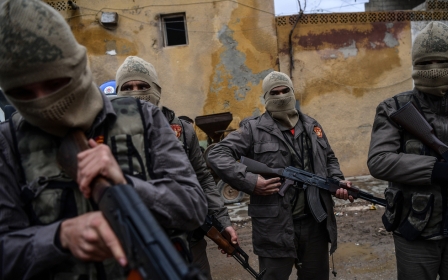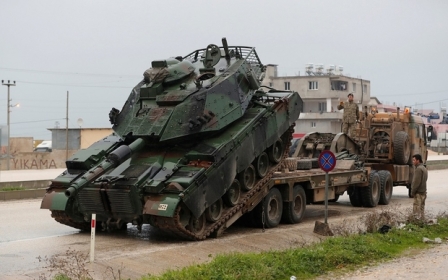Syria's Kurds say will not join Sochi peace talks
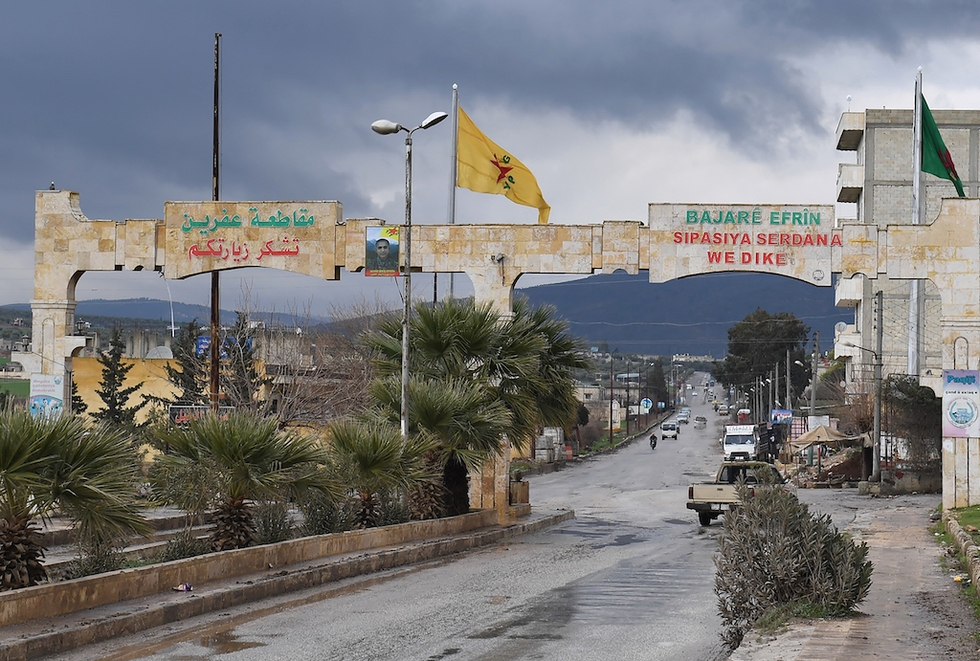
Authorities in Syria's Kurdish autonomous region said on Sunday they would not attend peace talks in Russia in the next few days because of Turkey's offensive against the Kurdish enclave of Afrin.
"We said before that if the situation remained the same in Afrin we could not attend Sochi," regional official Fawza al-Yussef said.
Rebel-backer Turkey is one of the sponsors of the talks to be held in the Black Sea resort of Sochi on Monday and Tuesday, along with Damascus allies Russia and Iran.
Turkey's military offensive in Afrin "contradicts the principle of political dialogue," Yussef said.
Turkey on 20 January launched Operation Olive Branch against the Syrian Kurdish People's Protection Units (YPG) militia in Afrin, supporting Syrian opposition fighters with ground troops and air strikes.
Ankara says the YPG is a "terrorist" offshoot of the outlawed Kurdistan Workers' Party (PKK), which is proscribed as a terror group by Ankara and its Western allies.
The Sochi talks come after multiple failed rounds of UN-brokered talks to end Syria's seven-year war.
A Turkish official stated last week that around 1,600 participants were set to take part in the negotiations.
On Saturday, Syria's main opposition group, the Syrian Negotiation Commission, also said it would not attend the negotiations.
"Russia has not succeeded in promoting its conference," the opposition Syrian Negotiations Commission (SNC) said on Twitter.
"The SNC has decided not to participate at Sochi after marathon negotiations with the UN and representatives of countries involved in Syria."
The UN has stated it will take part in the negotiations, but has been keen to stress that the process should be inclusive.
"The ultimate goal of a constitutional process is to enable the Syrian people to freely and independently determine their own future in UN-supervised parliamentary and presidential elections meeting the requirements laid out in resolution 2254," said the UN special envoy for Syria, Staffan de Mistura, who will be attending Sochi.
Strained relations
Turkey on Sunday stepped up its offensive against the YPG in Syria for a ninth day, in a campaign that has strained relations with the United States.
After several days of poor visibility because of heavy rain and fog, Turkish warplanes and artillery took advantage of the clear skies and pounded the hill of Barsaya near the Kurdish town of Afrin in northwestern Syria, official news agency Anadolu said.
Turkey launched Operation Olive Branch against the YPG, supporting Syrian opposition fighters with ground troops and air strikes.
While Turkey brands the YPG a "terror" group, the militia has received support from the US, its fighters spearheading the battle against the Islamic State group across large areas of Syria.
Despite souring relations with NATO ally Washington, President Recep Tayyip Erdogan has threatened to expand the offensive against the YPG to Manbij, east of Afrin.
More than 340,000 people have been killed and millions displaced since Syria's war began in 2011.
The conflict began with the brutal repression of anti-government protests, and it has since evolved into a complex war including militants and foreign powers.
New MEE newsletter: Jerusalem Dispatch
Sign up to get the latest insights and analysis on Israel-Palestine, alongside Turkey Unpacked and other MEE newsletters
Middle East Eye delivers independent and unrivalled coverage and analysis of the Middle East, North Africa and beyond. To learn more about republishing this content and the associated fees, please fill out this form. More about MEE can be found here.


